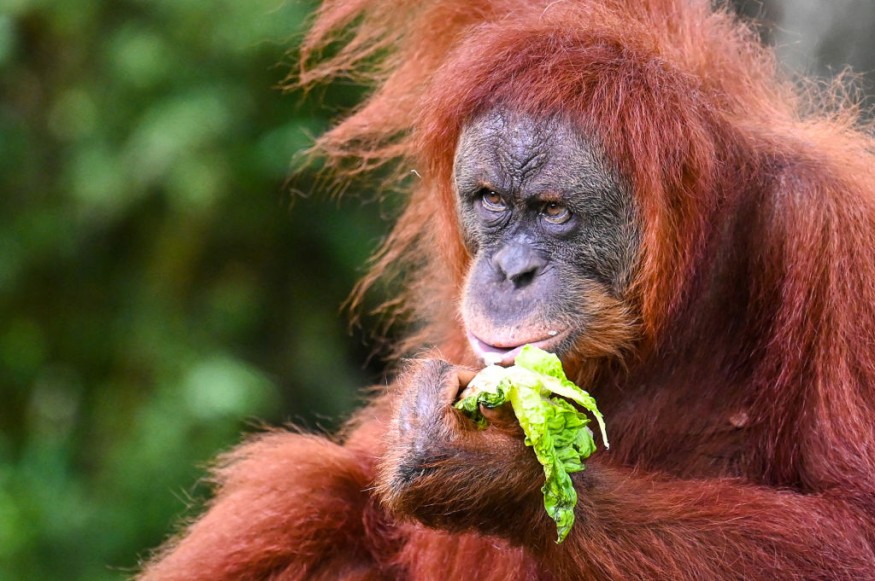The latest report revealed that a Sumatran Orangutan at Indianapolis Zoo was unusually diagnosed with Alkaptonuria, a rare genetic disease.
Researchers looked into the six-year-old Sumatran Orangutan named Mila and found that the animal showed an unusual history of dark urine when standing.
As a result, the research investigated the possible medical conditions of the young orangutan.
Rare disease discovered in a young primate

In the report published on Phys.org's website and Indiana University School of Medicine, the researchers explained that the six-year-old orangutan suffered from Alkaptonuria and was diagnosed when the researchers conducted urine organic analysis.
The report highlighted that it was the first time primate was diagnosed with a rare genetic disease.
The research was also published in Molecular Genetics and Metabolism.
According to the study, Alkaptonuria is a rare genetic disease that is caused by enzyme homogentisate deficiency.
The report noted that Alkaptonuria would not affect the animal's life expectancy. Still, it can affect its quality of life in the wild or zoo due to declining and poor mobility.
According to Dr. Marcus Miller, the discovery of the orangutan's condition was unexpected, adding the vital collaboration of the zoo that can improve the life of the young orangutan.
Dr. Miller is also an assistant professor of medical and molecular genetics.
While there are reports of the rare genetic disease in non-humans, the study noted there were no long-term studies.
Meanwhile, the World Wildlife Fund (WWF) explained that the Sumatran orangutan population also exists in parts of Sumatra Island and Java.
WWF noted that the orangutan population in North Sumatra suffered from a serious decline due to threats to agricultural development, forest fires and habitat loss.
The female Sumatran Orangutans prefer to bond on trees.
More facts about Alkaptonuria
The National Institute of Health (NHI) explained that Alkaptonuria can cause organ dysfunction and joint deformity.
The institute emphasized the importance of early diagnosis and treatment to avoid the severe impact on the human body.
Furthermore, the National Organization for Rare Disorders noted that affected individuals may not notice the symptoms of Alkaptonuria until they reached the time of adulthood.
As per Healthline, some of the common signs of Alkaptonuria are the following:
- Dark brown urine
- Arthritis, especially in parts of the knees and shoulders
- Black earwax or dark-looking sweat
- kidney stones
The report added that the disease could lead to other complications, including heart problems. To determine if you have Alkaptonuria, medical experts could conduct DNA and gas chromatography tests.
As a result, regular monitoring from medical doctors is essential to save from serious health risks.
Did you know?
According to WWF, the term orangutan means man of the forest originating from the Malay language and culture. Orangutans love to make nests in trees to sleep and socialize.
Related Article : Baby Coyote Finally Saved After Head Became Stuck in Plastic Container in Massachusetts
For more similar stories, don't forget to follow Nature World News.
© 2025 NatureWorldNews.com All rights reserved. Do not reproduce without permission.





